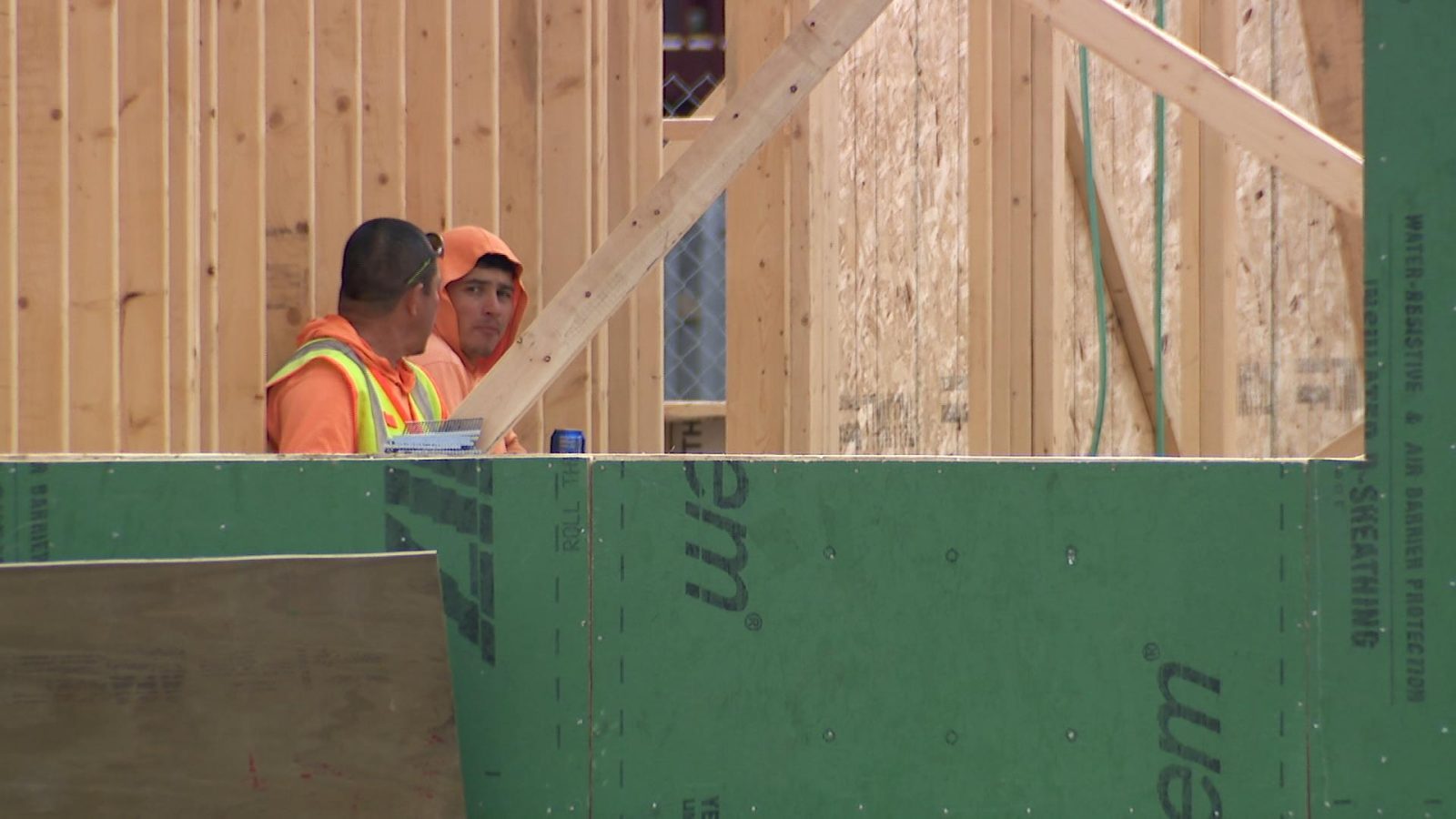Brooklyn Park City Council to Consider Prevailing Wage Policy
Brooklyn Park may start requiring construction contractors to pay their workers a prevailing wage on city job sites.
The Brooklyn Park City Council is planning to vote on a first reading of the ordinance on Monday, Oct. 23.
The city began considering the ordinance after labor leaders approached the council with concerns about wage theft.
Those labor officials “really talked about the prevalence of wage theft in the construction industry in particular,” said Zach Kramka, Brooklyn Park’s assistant to the city manager. “The council was really interested in addressing this problem from a policy perspective.”
Wage theft occurs any time an employer does not pay an employee what they are owed by law. That can happen when employers like construction contractors require off-the-clock work or don’t pay minimum wage.

Construction workers stand inside the Tessman Ridge housing development in Brooklyn Park. The city may start requiring construction contractors to pay their workers a prevailing wage on city job sites.
Prevailing Wage Enacts Minimum Wages and Benefits
One way to address wage theft is through a prevailing wage policy, Kramka said.
A prevailing wage policy requires that all contractors on all city job sites would have to pay their workers a minimum wage and benefits. This would also apply to subcontractors working city job sites.
“Really, what prevailing wage does is it promotes livable wages in the community,” Kramka said.
The policy would be in effect anytime a contractor is doing at least $50,000 worth of work on the city’s behalf.
“This is infrastructure, maintenance, the built environment,” Kramka said.
The policy would also apply anytime the city is helping to fund private construction projects, like the Tessman Ridge development on 85th Avenue.
Through the policy, the city could proactively check contractor payroll documents for discrepancies.
“If they are in the business of stealing people’s wages, it would really come out in those documentation pieces,” Kramka said.
If the council approves the policy, supporters hope it protects the rights of every construction worker.
“We recognize that if someone is falling victim to these types of crimes, they may be less like to come forward out of fear of retribution,” Kramka said.
It’s unclear what impact the policy could have the overall costs of construction projects, according to Kramka.
“That’s something we’ll definitely be monitoring,” he said.


